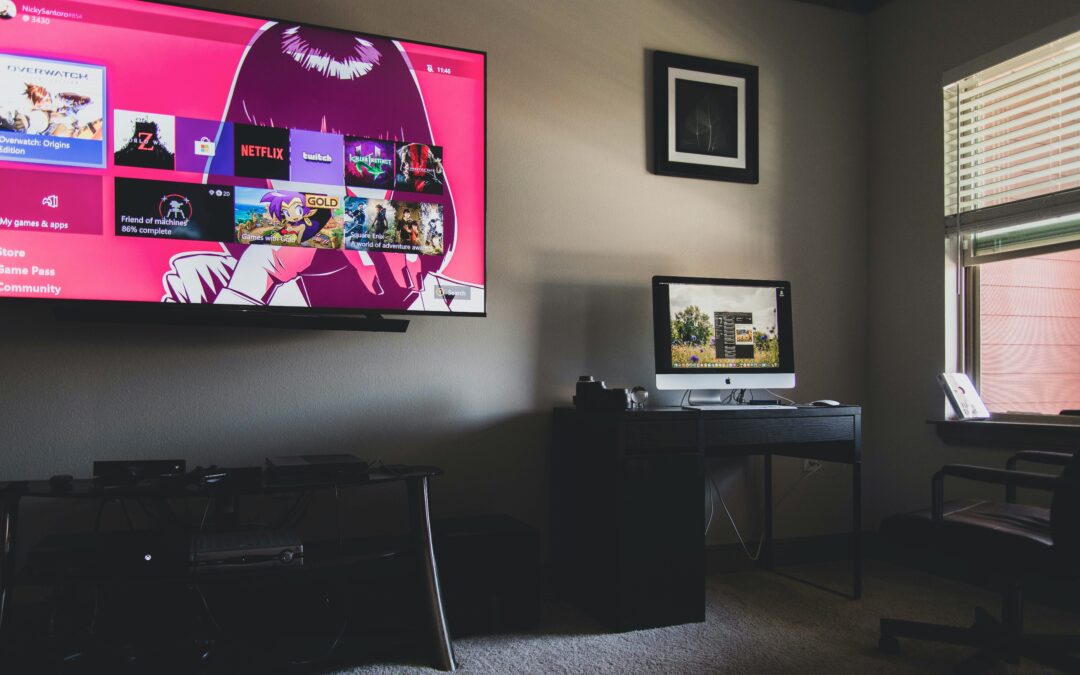TL;DR: IPTV is a revolutionary way to consume television, using internet protocols to deliver customizable, on-demand content across multiple devices. It offers greater flexibility, cost efficiency, and convenience compared to traditional TV but requires stable internet connectivity and careful selection of legal providers. Explore “iptv españa” to learn more about IPTV services.
Internet Protocol Television (IPTV) has emerged as a game-changer in the realm of content consumption, offering viewers unparalleled control and flexibility. Unlike traditional cable or satellite television, which relies on outdated transmission methods, IPTV leverages internet connectivity to deliver television programs and on-demand content. But what exactly is IPTV, and why is it reshaping how we think about TV?
The Basics of IPTV: Redefining Television Delivery
At its core, IPTV transmits television programs through the internet using Internet Protocol (IP). This method stands in stark contrast to traditional broadcasting methods, such as cable and satellite, which rely on signals transmitted via coaxial cables or satellites orbiting the Earth. IPTV eliminates the need for cumbersome hardware installations, making it a more versatile and accessible solution.
Key Benefits of IPTV
- On-Demand Flexibility: Watch content when and where you want, with options for live TV, video on demand (VOD), and time-shifted media.
- Device Compatibility: IPTV works seamlessly on various devices, including smart TVs, smartphones, tablets, and personal computers.
- Personalized Viewing: Advanced algorithms tailor content recommendations based on your viewing habits.
- Cost Efficiency: With fewer infrastructure requirements, IPTV often offers competitive pricing compared to cable or satellite subscriptions.
How Does IPTV Work? The Underlying Technology
IPTV relies on a robust infrastructure of servers and streaming protocols to deliver content efficiently. Here’s how the process unfolds:
- Content Acquisition: Media is sourced from broadcasters or created in-house.
- Encoding and Compression: Content is converted into a digital format suitable for transmission over the internet.
- Content Distribution: Through Content Delivery Networks (CDNs), media is streamed to end-users with minimal buffering.
- End-User Playback: Viewers access content via apps or IPTV boxes, ensuring compatibility across a range of devices.
Coperion Table: IPTV vs. Traditional TV Delivery
| Feature | IPTV | Traditional TV |
| Transmission Medium | Internet | Coaxial Cable/Satellite |
| Device Compatibility | Smart TVs, PCs, Tablets, Phones | Televisions |
| On-Demand Availability | Yes | Limited |
| Setup Complexity | Minimal | Moderate to Complex |
Why Choose IPTV Over Traditional TV?
The shift from traditional TV to IPTV isn’t just a passing trend. It’s a reflection of evolving consumer needs and technological advancements. Here’s why more people are making the switch:
- Customization: Traditional TV locks users into fixed schedules. IPTV liberates viewers by offering customized playlists and recommendations.
- Global Reach: IPTV services provide access to international content, something that cable services often struggle to match.
- Interactive Features: Many IPTV platforms include features like pause, rewind, and recording, adding a layer of convenience that traditional methods lack.
The Challenges of IPTV Adoption
Despite its advantages, IPTV does face certain challenges:
- Bandwidth Dependence: Smooth streaming requires a stable internet connection with adequate bandwidth.
- Content Legality: Ensuring compliance with copyright laws remains a pressing concern.
- Market Fragmentation: A multitude of providers can make choosing a service daunting for new users.
Solutions to Common Issues in IPTV Adoption
| Issue | Solution | Explanation |
| Bandwidth Issues | Upgrade to a higher-speed connection | Reduces buffering and enhances streaming quality |
| Legal Concerns | Use reputable services | Ensures compliance with licensing regulations |
| Service Selection | Research and trial | Helps identify the best provider for your needs |
Concluding Argument: The Case for IPTV
IPTV represents a monumental shift in television technology, aligning seamlessly with modern consumer demands. Its ability to merge live TV, on-demand content, and interactive features into one cohesive platform positions it as the future of entertainment. While challenges exist, they are far outweighed by the benefits and opportunities IPTV offers.
By understanding how IPTV functions and recognizing its advantages, you can make an informed decision about integrating it into your digital media repertoire.

